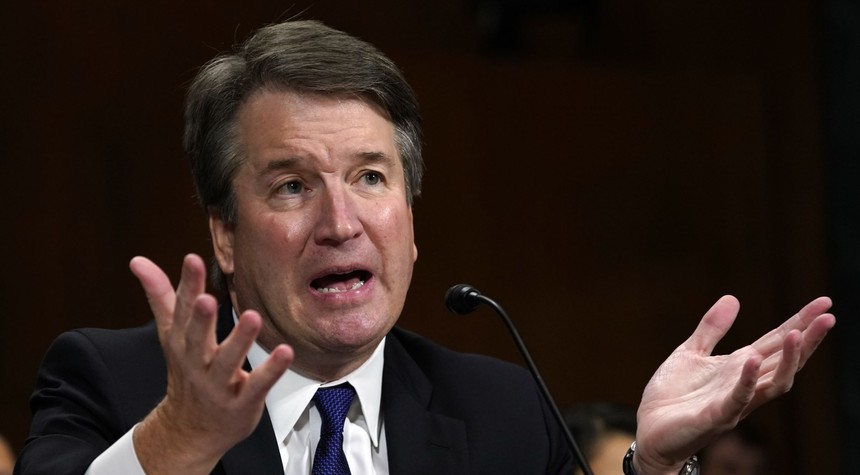
Article by Ed Morrissey in HotAir
SCOTUS and media silence: Whatever happened to the leak probe?
The leak rocked the federal judiciary, the American political scene, and led to an ugly campaign to intimidate Supreme Court justices, inspiring one assassination plot that thankfully went nowhere. Chief Justice John Roberts promised an investigation to identify the leaker, and the pool of suspects seemed relatively small — the justices themselves and their clerks. Almost three months later, though, the leaker has seemingly escaped detection and punishment.
Are they even still investigating the leak? The Associated Press can’t even get an answer to that question from the court:
Less than 24 hours after the unprecedented leak of the draft opinion that overturned Roe v. Wade, Chief Justice John Roberts ordered an investigation into the “egregious breach. ”
Since then? Silence.
The Supreme Court won’t say whether it’s still investigating.
The court also won’t say whether the leaker has been identified or whether anyone has been disciplined.
Or whether an outside law firm or the FBI has been called in.
Or whether the court will ever offer an accounting of what transpired.
Or whether it has taken steps to try to prevent a repeat.
To these and other emailed questions, Supreme Court spokeswoman Patricia McCabe said by email: “The Court has no comment.”
Give credit to the AP for asking, even if they ran the non-answer in the media dead zone of a Saturday release. The last significant media interest in The Case of the Purloined Draft appears to have been almost a month ago, when Fox News noted on June 30 that the mystery continues as the Supreme Court ended its term:
The Supreme Court ended its term Thursday until October, and the identity of the individual who leaked the high court’s Roe v. Wade draft opinion still remains a mystery.
Chief Justice John Roberts on Thursday announced that the court has “acted upon all cases submitted to the Court for decision this Term,” and will be in recess from Thursday until the first Monday in October. …
At this point, there has been no update or disclosure from the Supreme Court on the identity of the individual who leaked the draft opinion.
The Washington Post hasn’t addressed the leak since mid-May, as a search for “Supreme Court leak Alito” reveals, and even that was only tangentially. “Supreme Court leak Dobbs” comes up with no investigation-relevant hits either. A search for “Supreme Court leak Alito” at the New York Times produces hundreds of hits over decades of archives, but nothing relevant since May 11. A search there for “Supreme Court leak Dobbs” produces nothing relevant since May 8, an article which is particularly apt for this discussion:
On Monday night, an alert popped into a New York Times internal messaging channel: A draft United States Supreme Court decision to overturn Roe v. Wade and end federal protection of abortion rights had been leaked and published. A court leak was an incredibly rare event and, if the document was confirmed as authentic, the decision would reshape women’s access to abortion in many states and send a shock through U.S. politics.
It was 8:47 p.m., and leading The Times’s report was war news from the Ukrainian city of Mariupol. The first print edition had closed at 8 p.m. There were two more deadlines before the last edition of the newspaper closed at 10:30.
In an instant, the direction of the night changed. Over the next several hours, dozens of Times journalists sprang into action to confirm the leak, report the news and put the story into as many newspapers as possible. They worked across time zones and from the office, home and the printing plant.
“It was a slow tsunami of a news story,” said Steve Kenny, director of the newsroom’s night coverage. “We see the wave, but how big is it going to get?”
The substance of the leak helped drive the tsunami, of course, but so did the novelty of the leak itself. At the time, media outlets made a lot of hay speculating on the damage that the leak did to the Supreme Court and how it made the court more political, akin to the White House and Congress. The cloistered nature of the Supreme Court and the narrow band of potential suspects made it even juicier for the media, along with its implications of an activist attempting to pervert the normal decision process of the nation’s top court.
So why has the media abandoned this compelling whodunit? One can understand why the court isn’t talking much about the leak probe, or at least the potential reasons for protecting a difficult investigation of its own personnel. It’s tough to grasp why the same leak that generated a stop-the-presses impulse in the media has turned into an entirely indifferent attitude toward the leak and the investigation — which necessarily will involve questions about the media and their access to sources.
As for Roberts and the court’s marshal, this silence may be understandable in terms of substantive updates on the probe. It’s a lot less understandable in terms of acknowledging that the probe is under way. Roberts already announced that the court would get to the bottom of the scandal and take appropriate measures, and it’s hardly indiscreet to report that the investigation exists, if it still does. Furthermore, this will need to get some sort of public conclusion, because every clerk that served in this term will go into other practices under a cloud until the actual leaker is identified. It does the innocent an injustice to stonewall on this, and an even bigger injustice if the court drops the matter altogether.
That’s what it appears they have done, however. Why else not at least reveal that the investigation is still underway?


